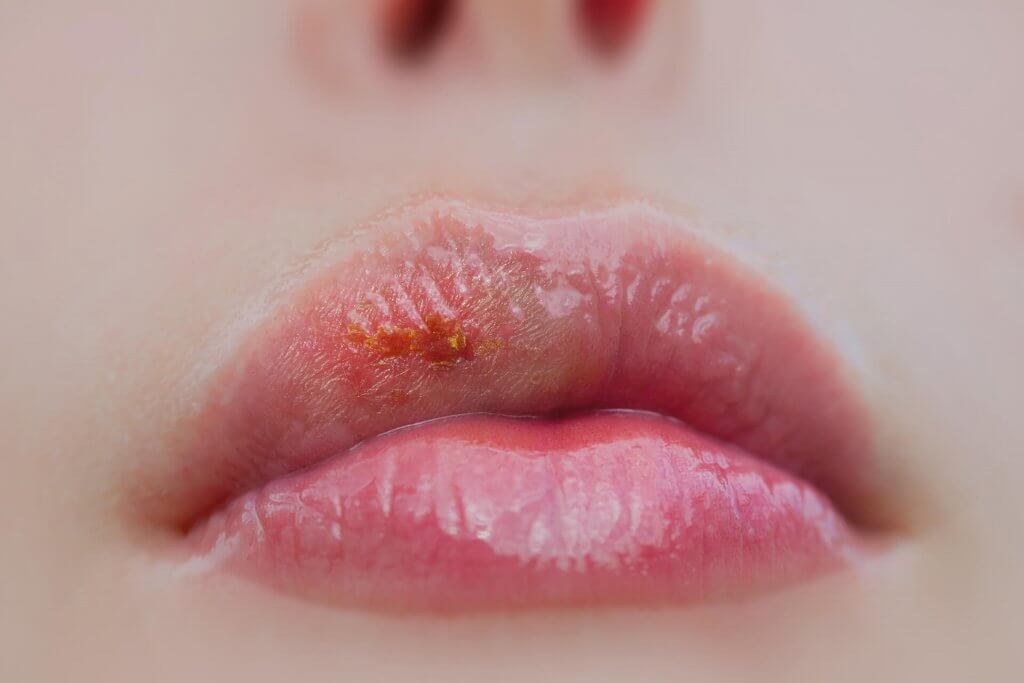Out of the numerous mouth infections, one can suffer from, we would like to introduce you to the three most common. Today’s topic is oral herpes, also known as cold sore.
Caused by the Simplex virus, herpes (cold sore) can be found in 95% of the adult population. Herpes Simplex Virus (HSV-1) is responsible for oral herpes, and not to be confused with HSV-2, which causes genital herpes. It is a droplet infection, and as such, it can appear in the body at any time. The infection normally enters the body at infant age, and spreads around the nerve endings. Since the it is mostly asymptotic, most carriers are unaware they are infected.
Once you have contacted the infection, it will stay in the body. Therefore every case of cold sore after the first one, is just the same infection re-appearing periodically.
What causes herpes?
The most common triggers are:
– weak immune system
– hormonal changes
– stress
– lack of hygiene
The infection normally starts with flu-like symptoms, including: fever, headache, tiredness, lack of appetite. However, the most common symptoms are the painful blisters or open sores in or around the mouth. Once you start experiencing any of these symptoms, it is recommended to avoid physical contact with other people. Also avoid sharing any items that can come in contact with the infected area. This includes: cups, towels, lip balm, silverware, clothing, makeup.
How to make it go away?
Since the infection cannot be healed, you can only treat the symptoms.
In order to get rid of the ulcers as soon as possible, you can use the following:
– cold sore patches
– painkiller gels
– anti-inflammatory gels
Make sure to wash your hands thoroughly and apply medication with cotton swabs.
